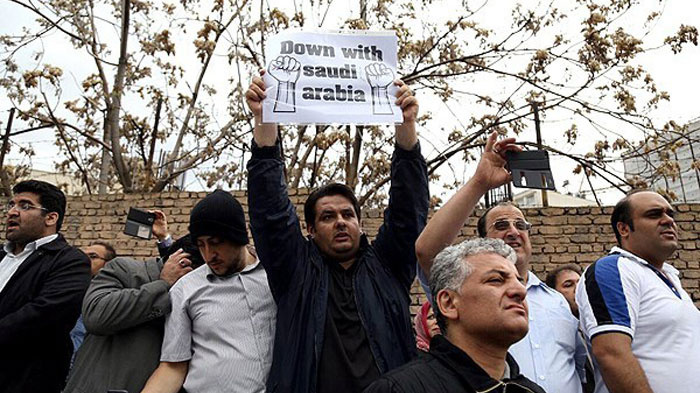Adding harassment to hatred

Iranian Diplomacy- The recent incident in Jeddah Airport was just the latest in the history of Iran-Saudi Arabia conflicts, though to many Iranians, it seems that this time the other side had stepped far beyond the red line.
The news spread online ten days after the incident, when the parliamentary deputy of the foreign ministry Hassan Qashqavi confirmed news about sexual “quasi-assault” against two Iranian teenagers in the Jeddah Airport while they were returning from the hajj pilgrimage. According to reports, the two had been called out of the row for further inspection by the airport security, just to return some minutes later traumatized for being exposed to sexual assault.
The incident fitted quite well within the current state of Iran-Saudi Arabia relations. The spate of proxy wars between Tehran and Riyadh, from Syria to Iraq and most recently Yemen have revitalized deep-seated enmities between the two sides: anti-Arab sentiments among Iranians are on the rise, and anti-Shi’a discourse within the Arab news and social media is quite common.
The news that the two Saudi forces associated with the incident were to be tried was of no help to soothe the anger. Soon afterwards, messaging apps such as Viber became turned into a hotspot. The content of messages covered a broad range: from anti-Arab chauvinistic quotes and poems, to remembrance of the ‘good old days’ when Arabs were awed by Iran’s prowess, calls to boycott pilgrimage to Mecca, and of course, given Iranians’ knack to quip about their ordeals, jokes about the incident.
Viber brought citizens together in front of the Saudi consulate in Tehran on April 11th and in Mashhad on April 16th. The demography of protestors and their slogans showed how the issue has brought together nationalistic, religious and political interests together. Later that day, President Rouhani ordered the Minister of Culture to follow the case until the prosecution of the agents [22 Farvardin]. A third demonstration was held on April 13th by Islamist students and conservative figures in front of the embassy, where slogans were chanted in support of the Houthis in Yemen.
Public pressure also led the Ministry of Culture to suspend pilgrimage to Mecca and Medina until further notice since “the public dignity of the Iranian nation was tainted.” In a rare incident, the controversial minister was lent support by a conservative figure, Tehran Friday prayers leader Movahhedi Kermani who said that “it was not right to bear this dishonor.”
As the initial wave of anger subsided, a much weaker counterwave rose up in the Iranian cyberspace. The key point of criticism was anti-Arab chauvinistic sentiments which had reached a new level following the incident, the most glaring of all perhaps the after-goal celebration by Persepolis FC player Mahdi Taromi in match against the Saudi side al-Nasr in the Asian Cup. Sadegh Zibakalam, Tehran University professor and man of letters –literally- lamented that some political and religious figures have supported the “waves of racism and (anti) Arab hatred” that has taken place following the incident. Meanwhile, officials, including Minister of Culture Ali Jannati, tried to clarify that no sexual assault has occurred, unlike what circulated among the public, but the issue was a case of sexual harassment.
Among all the for and against reactions, the most bizarre remark came from a well-known cleric, former Friday prayers leader of Shiraz Ayatollah Haeri who tried to derive nuclear conclusions from the saga. Inspection of Iranian citizens led to sexual assault, he said in a TV show, and inspection of Iran’s military bases under the guise of nuclear agreement will lead to another form of assault, this time against the establishment, he said, calling the Jeddah incident a sign from God.

